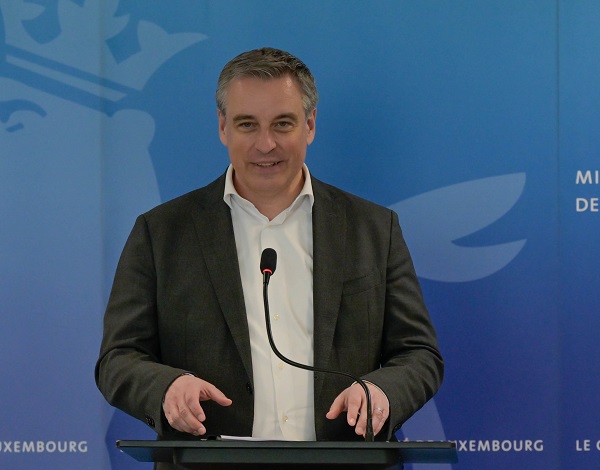 Claude Meisch, Luxembourg's Minister of Education, Children and Youth;
Credit: MENJE
Claude Meisch, Luxembourg's Minister of Education, Children and Youth;
Credit: MENJE
On Monday 31 March 2025, Luxembourg's Minister of Education, Children and Youth, Claude Meisch, presented the early detection system for special needs implemented in Luxembourg, with a focus on equity and inclusion, in the presence of representatives of various centres of expertise in specialised psychopedagogy and the Luxembourg Centre for Educational Testing (LUCET).
As reported by Luxembourg's Ministry of Education, Children and Youth, this system is among the most effective internationally and has been enhanced by new tools for diagnosing specific learning disabilities adapted to the multilingual context of the country's school population.
"We want to identify potential disorders from an early age, to provide each child with the support they need and best support their development. The goal is to prevent as many academic delays as possible that could hinder their academic progress. The earlier we identify potential obstacles to learning and development, the more quickly we can respond in a targeted manner, supporting students, their families and teachers," explained Minister Meisch.
Among the eight specialised psychopedagogy competence centres, several systematically intervene in Luxembourg's public schools as part of the early detection of special needs. The Centre de Logopédie (CL - speech therapy centre) works throughout Cycle 1 (pre-primary) with teams of teachers specialised in speech therapy and speech therapists to identify pupils with indications of hearing impairment or language development disorders. The Centre pour le Développement Moteur (CDM - Centre for Motor Development) screens all pupils in cycle 1.2 each year for specific motor development disorders. The Centre pour le Développement des Compétences Relatives à la Vue (CDV - centre for the development of vision-related skills) and LUCET have developed an innovative process for screening for vision disorders, integrated into the standardised tests (ÉpStan), in which all students in cycle 2.1 participate. It provides information on potential vision disorders, which are then tested during the screening itself.
When it comes to diagnosing specific learning disorders such as dyslexia, dysorthography and dyscalculia, the Centre pour le Développement des Apprentissages Grande-Duchesse Maria Teresa (CDA) has until now relied on standardised tests which the ministry noted are not adapted to the country's language context. A collaboration with LUCET to develop new diagnostic tools has led to the creation of tests specifically adapted to the country's multilingual context. These tests are said to enable a more accurate diagnosis by distinguishing linguistic difficulties related to the student's language profile from specific learning disorders such as those mentioned above.
In this same vein, the Education Ministry, in collaboration with LUCET, is considering implementing a system to detect mental health-related vulnerabilities in order to provide targeted support to affected students and improve their psychological well-being.








